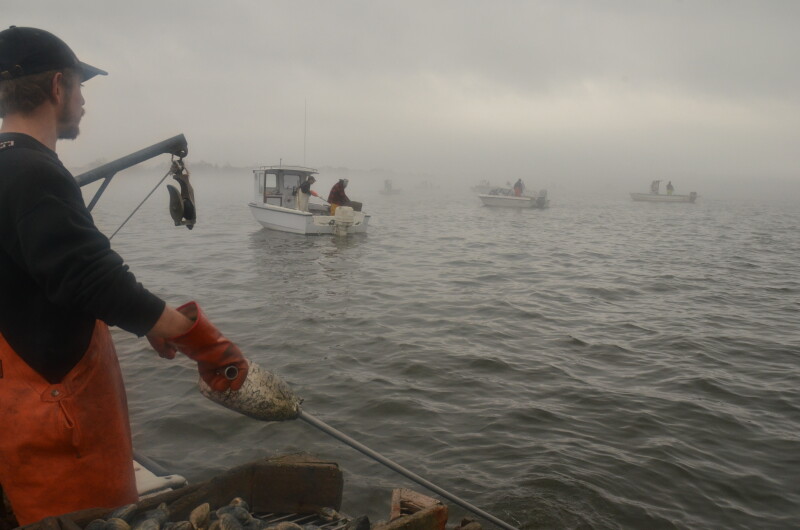“Climate action led by people in boots, not people in suits.”
Late in 2022, a group of industry people including fishermen and consultants volunteered to work on the idea of helping fishermen increase efficiency and save money. But rather than impose its ideas on fishermen, the group wants more fishermen’s input into to guiding the industry’s transition to a “Low-Carbon Fishing Fleet.”
Led by four independent researchers with roots in the fishing industry and a steering committee of fishing industry participants, the project will consider how to “support voluntary emissions reductions in the U.S. fishing fleet.” In February, researchers Sarah Schumann and Erika de la Rosa, who both crew on Bristol Bay gillnet vessels, began looking for fishermen on the West Coast, Alaska, and New England, to participate in interviews.
“The project is a lot more demanding than I anticipated,” says Schumann, who is currently conducting interviews on the West Coast. “We feel like we have to get this work done because government programs are being set up, and this week the White House released an Ocean Climate Action plan that is not fishery friendly. But it calls for designing programs to support the de-carbonization of the fishing fleet, and we want to see the fishing industry show federal agencies how to do this right.”
Schumann notes that there are programs that fishermen can take advantage of, including receiving repowering subsidies through the Diesel Emissions Reduction Act (DERA), and accessing loans and grants for “Renewable Energy Systems & Energy Efficiency Improvements” through the USDA’s the Rural Energy for America Project (REAP). “But these programs are limited in scope,” says Schumann. “And a lot of fishermen fall through the gaps.”
Other programs are springing up to tackle climate issues vessel by vessel and state by state. “The Gloucester Fishermen’s Wives have received a $2 million dollar grant to come up with plans for a more energy efficient fishery over the next 3 years,” says Schumann. “They will be interviewing fishermen and shoreside businesses and developing RFPs [research funding proposals] for cost effective ways to reduce carbon emissions in different Massachusetts fleets.”
While Schumann and de la Rosa are currently conducting interviews on the West Coast, they also plan to interview Alaska and New England fishermen by mid-summer. “Once we get done talking to fishermen,” Schumann adds, “We hope to survey the programs, like DERA and REAP, to see what they are actually doing.”
While many fishermen in the Maine lobster and Bristol Bay salmon fisheries are powering up and looking for efficiency in speed, Schumann is evaluating what it would take to convert her own shellfish skiff in Rhode Island to an electric outboard built by the Rhode Island based start-up, Flux Marine. “Right now, it costs five times more to repower with electric, compared to a four-cycle gas engine, so it’s not going to happen without some help,” she says.
Schumann says that the research has already pointed out a need for an information clearinghouse to help fishermen understand what changes are right for them. “We need to collect data and create a decision tree that fishermen can follow to find out what will work for them,” she says.
People interested in participating in an interview with Schumann or de la Rosa can access sign up on the project’s website, https://www.fisheryfriendlyclimateaction.org/.







